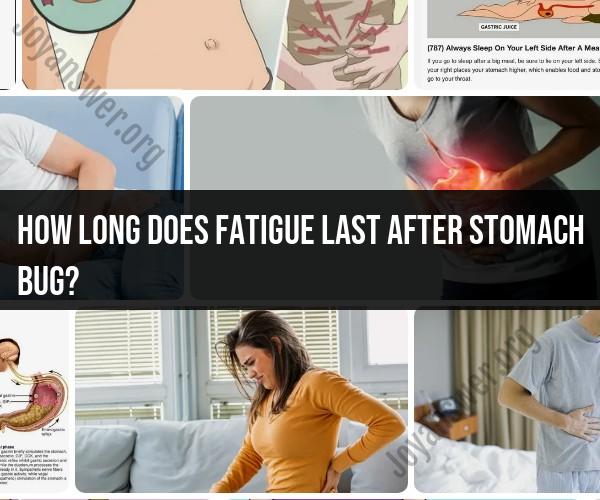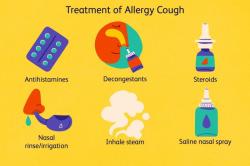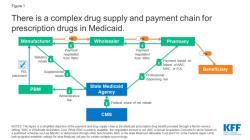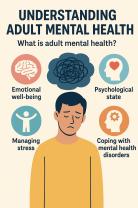How long does fatigue last after stomach bug?
Fatigue can persist for several days to a few weeks after recovering from a stomach bug, and the duration can vary from person to person. The extent and duration of post-stomach bug fatigue depend on several factors, including the severity of the illness, the individual's overall health, and their body's ability to recover.
Here are some factors to consider regarding post-stomach bug fatigue:
Severity of the Illness: The more severe the stomach bug and its associated symptoms (such as vomiting and diarrhea), the more likely it is that you will experience fatigue and weakness after recovery. Severe dehydration, which can accompany stomach bugs, can also contribute to fatigue.
Individual Health: Your overall health and immune system strength play a role in how quickly you recover from a stomach bug and the duration of post-illness fatigue. People with weaker immune systems or underlying health conditions may experience prolonged fatigue.
Hydration and Nutrition: Proper hydration and nutrition are essential for recovery. If you were able to maintain good hydration and nutrition during and after the illness, it may help you recover more quickly and experience less fatigue.
Rest: Getting adequate rest and sleep is crucial for recovery. Rest allows your body to repair and regenerate cells, which can help reduce fatigue.
Recovery Time: Some individuals may bounce back quickly and experience only a few days of fatigue, while others may take longer to fully recover.
If you find yourself experiencing prolonged fatigue after a stomach bug, consider the following tips to aid your recovery:
Stay Hydrated: Continue to drink clear fluids, such as water, electrolyte solutions, or clear broths, to maintain hydration.
Eat Nutritious Foods: Gradually reintroduce bland, easy-to-digest foods like plain rice, bananas, applesauce, and toast (BRAT diet) as your appetite returns. These foods can provide energy and essential nutrients.
Rest: Listen to your body and get plenty of rest. Avoid strenuous physical activity until you feel fully recovered.
Gentle Exercise: As your energy levels improve, engage in gentle, low-impact activities like short walks to gradually rebuild strength and stamina.
Consult a Healthcare Professional: If fatigue persists for an extended period, or if you have concerns about your recovery, consult a healthcare professional for a thorough evaluation. Fatigue can sometimes be a sign of underlying health issues.
Keep in mind that recovery from a stomach bug is a gradual process, and it may take some time before you feel completely back to normal. Prioritize self-care, rest, and good nutrition during the recovery period to support your body's healing process.
Battling Fatigue After a Stomach Bug: How Long Does It Last?
Fatigue is a common symptom of a stomach bug, and it can last for several days or even weeks after the other symptoms have resolved. This is known as post-viral fatigue.
The exact cause of post-viral fatigue is not fully understood, but it is thought to be related to the body's immune response to the infection. The body needs time to heal and recover from the infection, and this can lead to fatigue.
Post-Illness Fatigue: Recovery Timeline After a Stomach Bug
The recovery timeline for post-viral fatigue varies from person to person. Some people may start to feel better within a few days, while others may experience fatigue for several weeks or even months.
There is no specific treatment for post-viral fatigue, but there are some things you can do to manage your symptoms, including:
- Get plenty of rest. Your body needs time to heal, so it is important to get plenty of rest.
- Eat a healthy diet. Eating a healthy diet will give your body the nutrients it needs to heal. Be sure to eat plenty of fruits, vegetables, and whole grains.
- Drink plenty of fluids. Dehydration can make fatigue worse, so it is important to drink plenty of fluids, such as water and sports drinks.
- Avoid caffeine and alcohol. Caffeine and alcohol can dehydrate you and make fatigue worse.
- Exercise regularly. Exercise can help to improve your energy levels and reduce fatigue. However, it is important to start slowly and gradually increase the intensity and duration of your workouts.
If you are experiencing post-viral fatigue, it is important to be patient and kind to yourself. It takes time for the body to heal from an infection.
Dealing with Lethargy: Managing Fatigue Following a Gastrointestinal Infection
Here are some additional tips for managing fatigue following a gastrointestinal infection:
- Listen to your body. Don't push yourself too hard when you're feeling tired. Take breaks when you need them, and get extra rest if you can.
- Delegate tasks. If you have too much on your plate, ask for help from friends, family, or coworkers.
- Avoid stressful activities. Stress can make fatigue worse, so try to avoid stressful activities as much as possible.
- Practice relaxation techniques. Relaxation techniques, such as deep breathing and meditation, can help to reduce stress and improve sleep quality.
- Talk to your doctor. If you are concerned about your fatigue, talk to your doctor. They can help you to rule out any other underlying medical conditions and develop a plan to manage your fatigue.
If you are experiencing fatigue after a stomach bug, it is important to remember that you are not alone. Post-viral fatigue is a common symptom, and it usually resolves on its own within a few weeks or months. However, if you are concerned about your fatigue, or if it is interfering with your daily life, talk to your doctor.













